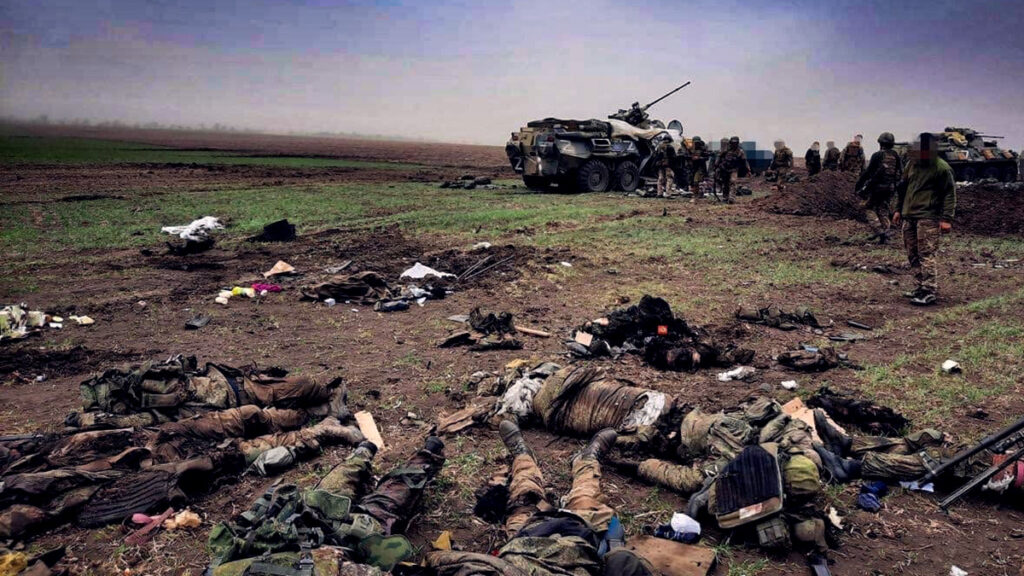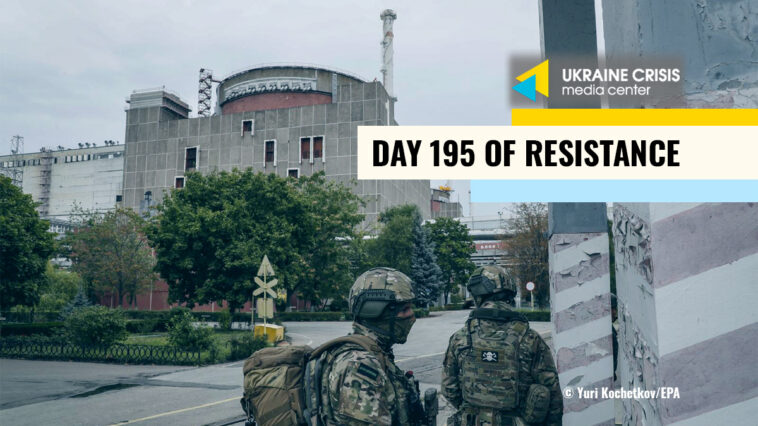IAEA releases report following visit to Zaporizhzhia nuclear power plant
The International Atomic Energy Agency (IAEA) released a report on Tuesday, September 6, after a visit of the organization-led mission to the Zaporizhzhia nuclear power plant captured by the Russians. The report has 52 pages.
“There is an urgent need for interim measures to prevent a nuclear accident arising from physical damage caused by military means,” the report’s conclusions say. “This can be achieved by the immediate establishment of a nuclear safety and security protection zone. The IAEA is ready to start immediately the consultations leading to the urgent establishment of such a nuclear safety and security protection zone at the Zaporizhzhia nuclear power plant,” the organization stated.
This is the first time a “military conflict” occurs at a nuclear facility, the IAEA said. A nuclear accident can have a serious impact both within the country and beyond its borders, the report proceeds.
During the mission, “the team closely witnessed shelling in the vicinity of the Zaporizhzhia nuclear power plant, in particular on 3 September when the team was instructed to evacuate to the ground level of the Administrative Building. Moreover, the team observed damage at different locations caused by reported events with some of the damage being close to the reactor buildings,” the report reads. The IAEA said the military vehicles stationed at the plant and fighting raging near the station threaten its safety systems. Shelling of the area needs to stop, the organization said without specifying who launches the attacks.
“The team observed the presence of Russian military personnel, vehicles and equipment at various places at the Zaporizhzhia nuclear power plant, including several military trucks on the ground floor of the Unit 1 and Unit 2 turbine halls,” the mission said. The IAEA recommends to remove the vehicles “from areas that could interfere with the operation of safety and security systems and equipment.”
The IAEA mission has a limited mandate at the Zaporizhzhia nuclear power plant. It cannot demand that Russia leaves the station. In an interview with Reuters, president of Energoatom Petro Kotin called the situation at the plant “very dangerous” and unprecedented because of the deterioration of the power lines linking the facility to the Ukrainian grid.
Kyiv expected to hear more than expressions of concern from the IAEA, Kotin said. “This is a peculiar situation. All the experts and (IAEA chief Rafael) Grossi himself understand that what is needed to be done is the de-occupation. Still they can’t directly propose this because of the limitation of the mandate,” he said.
Price of invasion: Russia loses more than 50,000 troops, Ukraine’s General Staff says
Since the full-scale invasion of Ukraine, Russia has lost around 50,150 troops, the General Staff of the Ukrainian Armed Forces said, quoting count as of morning of September 6. A day earlier, the Russian forces took the heaviest losses on the Donetsk axis. Russia has lost more than 13,000 pieces of equipment since the invasion.

European Commission proposes to suspend visa deal with Russia
The European Commission officially proposed to fully suspend the EU’s Visa Facilitation Agreement with Russia, the Commission’s statement reads.
The proposal to suspend the Visa Facilitation Agreement will put an end to all facilitations for Russian citizens applying for a short-stay visa to the Schengen area. The general rules of the Visa Code will apply instead.
In practice, Russian applicants will face a higher visa fee – the visa fee will increase from EUR 35 to EUR 80 for all applicants.
Processing time will increase. The standard deadline for consulates to take a decision on visa applications will increase from 10 to 15 days. This period may be extended up to a maximum of 45 days in individual cases, when further scrutiny of the application is needed.
There will be more restrictive rules on multiple-entry visas. Applicants will no longer have easy access to visas valid for multiple entries to the Schengen area.
South Africa: pro-Russian neutrality? Ukraine in Flames #180
Although the African continent is as far from the battlegrounds of the Russian-Ukrainian war as possible, it still feels the impact of Russian aggression in more than one way. The key area of concern is, of course, food security. Russia has long been investing in regional influence and, while some countries try to maintain neutrality, in reality this neutrality often leans to the pro-Russian position. Ukraine In Flames #180 presents experts from the Republic of South Africa to tackle the issues shaping this position.
Speakers:
- Steven Gruzd, Head of African Governance and Diplomacy Programme at the South African Institute of International Affairs (SAIIA)
- Dzvinka Kachur, Fellow researcher, Centre for Sustainability Transitions, Stellenbosch University
- Professor William Gumede, the School of Governance, University of the Witwatersrand and Executive Chairperson of Democracy Works Foundation




